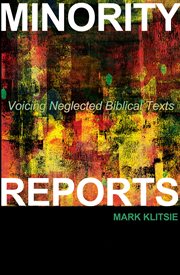Details
PUBLISHED
Made available through hoopla
DESCRIPTION
1 online resource
ISBN/ISSN
LANGUAGE
NOTES
The stuff that comes after modernism isn't all bad. Postmodernism, not needing everything to be buttoned up, can leave things dangling; it can pay attention to the obscure, marginal, and particular. The postmodern dynamic invites one to revisit biblical texts that do not fit into tidy, cherished theological constructs: I call these texts the "minority reports." Popular theology infers that God is just pretending when he changes his mind or gets frustrated, saddened, and affected by humans--this understanding is guided by concepts of God's omni-attributes. But these wise and well-intentioned concepts fail to portray a God who will not be domesticated. Certain biblical narratives trace YHWH's hiddenness, suffering, changeability, and "hostility"--this awkward "shadow side" of YHWH is sometimes selectively overlooked. The fear of God is gone. Instead we have the ever-tolerant, universal God who is in danger of evaporating into "spirit," "light," and "love." As a theologian I use Hebrew block logic: competing truths in the Bible are kept intact; synthesis isn't necessarily sought. God chooses us and we choose God; God is self-sufficient, all-powerful, and all-knowing, needing no creature. Yet he chooses to limit his "omni-ness" in the human arena and makes himself vulnerable to humans. He hyphenates his name with Abraham, Isaac, Jacob--and the church--at a risk
Mode of access: World Wide Web







